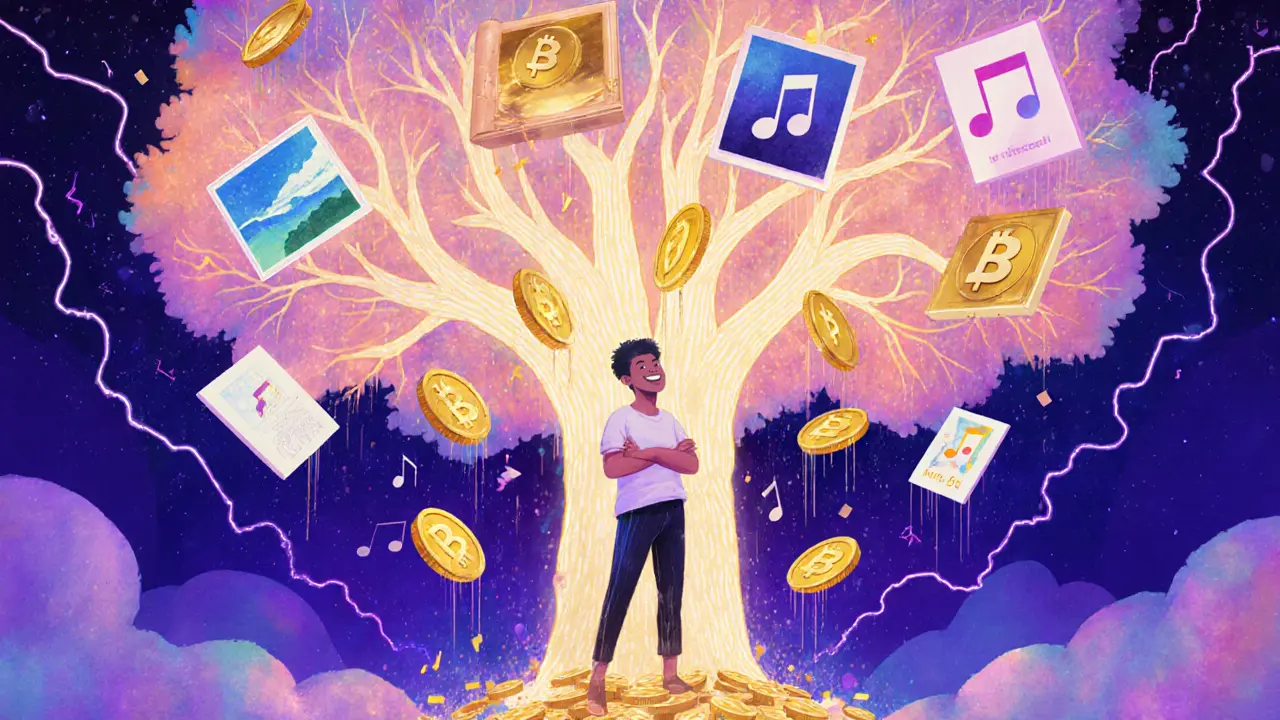NFT Royalties: How Creators Earn Forever and Why Most Fail
When you buy an NFT royalty, a payment automatically sent to the original creator every time the NFT is resold. Also known as secondary sales fees, it’s meant to keep artists paid long after their work leaves their hands. Sounds fair, right? But here’s the truth: most NFT royalties don’t get paid—not because the tech doesn’t work, but because the rules are ignored.
NFT royalties rely on smart contracts, not laws. Platforms like OpenSea used to enforce them automatically. Now? Many buyers and sellers just skip them. Why? Because there’s no legal teeth behind the code. If you buy an NFT on a new marketplace that doesn’t support royalties, the creator gets nothing. Even worse, some creators now mint the same artwork on multiple platforms, hoping one will pay. And buyers? They’ve learned to look for royalty-free NFTs. It’s a race to the bottom.
Some projects still pay. CryptoPunks? No royalties—launched before the idea existed. Bored Ape Yacht Club? Royalties are enforced on their own marketplace, but not elsewhere. Meanwhile, indie artists on Solana and Ethereum are seeing their royalty rates drop from 10% to 0% as buyers flee to unregulated exchanges. The dream of passive income for digital creators is crumbling under the weight of greed and weak enforcement.
There’s a reason this matters. NFT royalties were supposed to fix the broken art world—where painters never saw a dime after their first sale. Now, the same thing’s happening again, just with blockchain. The tools exist. The intent was good. But without universal standards, the system is just a suggestion. What you’ll find below are real cases: projects that nailed royalties, platforms that killed them, and creators who lost everything because no one had to pay.
Benefits of NFT Royalties for Artists: How Blockchain Lets Creators Earn Forever
NFT royalties let artists earn a percentage every time their digital art is resold, creating lifelong income without middlemen. Real artists are making thousands monthly - here’s how it works and why it matters.
read more

